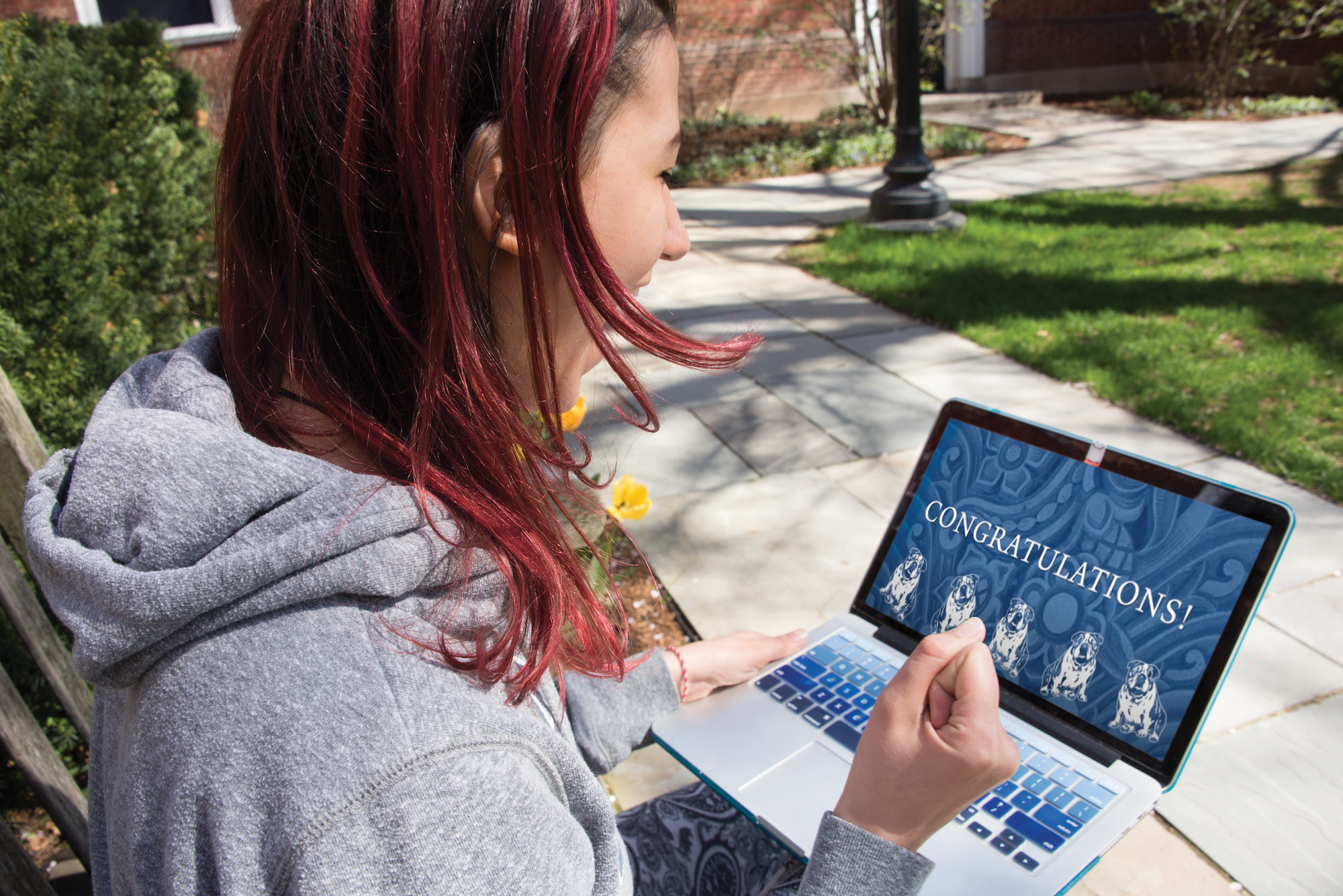81 QuestBridge Scholars to join the class of 2026
Yale matches with second-highest number of QuestBridge finalists in partnership history.

Yale Daily News
This week, the first members of Yale’s class of 2026 opened their acceptance letters. Eighty-one QuestBridge finalists matched with Yale, the second highest number of matches Yale has seen since the University partnered with QuestBridge in 2007.
The QuestBridge admits are eligible to receive Yale’s most generous financial aid package, consisting of a $0 parent share award, and for the second time, they are required to matriculate. The incoming first-year cohort falls short of only the class of 2024 QuestBridge cohort, in which 87 high school students matched with Yale. The 45 partner schools involved with QuestBridge matched a record-high 1,674 students this year.
“The achievements of our Match Scholarship Recipients are a culmination of their hard work and perseverance,” Ana McCullough, co-founder and CEO of QuestBridge, said in a press release. “Thanks to the commitment of our college partners, these deserving students can tap into their full potential without worrying about the cost of a great education.”
QuestBridge is a national nonprofit organization that works with high-achieving, low-income students in the college application process. This year, 16,500 high school students applied to QuestBridge’s National College Match Scholarship, which offers full scholarships at prestigious universities to low-income students. QuestBridge chose 6,312 finalists for the match who were able to rank up to 12 of the organization’s partner colleges. Students match with the highest school on their list that chose to admit them. About a quarter of QuestBridge finalists matched this cycle.
To match with Yale, QuestBridge applicants must rank the school, endure Yale’s rigorous application review process and meet the financial criteria for a $0 parent-share. Families with typical assets earning less than $75,000 per year do not pay the parent share.
“Just like there’s no typical Yale applicant, there’s no typical QuestBridge Finalist,” Yale admissions officer Corinne Smith wrote in an email to the News. “QuestBridge Finalists come from all around the country. They vary in the types and size of schools, towns, and neighborhoods they apply from. The main thing they have in common is that QuestBridge Finalists are high-achieving, low-income students whose family income is typically under [$75,000] per year.”
Beginning last year, Yale’s Questbridge match is binding, meaning Questbridge applicants who match with Yale agree to attend the University if admitted. The Massachusetts Institute of Technology remains the only QuestBridge partner with a non-binding policy. The only other holdouts — Princeton University and Stanford University — made the switch with Yale, starting last application cycle.
Because of the non-binding policy, Yale’s matches in previous years do not necessarily indicate who matriculated.
According to Mark Dunn, the director of outreach and communications at the Office of Undergraduate Admissions, more QuestBridge match admits matriculated to Yale last year than the year before, even though the class of 2024 yielded over 10 more matches than the class of 2025 did.
But this year all 81 QuestBridge matches will cross through Phelps Gate next autumn, and they will likely be joined by other QuestBridge applicants. More QuestBridge students may join the class of 2026 as early action and regular decision results come out. For example, of the 400 Questbridge students on campus, there are 131 in the first-year class, though only 87 matched with Yale in Dec. 2020.
“Since our partnership with QuestBridge began, we have always admitted more QuestBridge finalists through regular decision or early action than through the match, and we expect this year will be the same,” Dunn said.
Any QuestBridge finalist who ranked Yale during the match but did not match with the University or another QuestBridge partner will automatically be entered into the regular decision pool without having to fill out a new form or pay an application fee. Those who did not rank Yale may choose for Questbridge to forward their application to Yale for regular decision consideration, and non-finalists may still apply to Yale through the coalition or common applications.
Dunn affirmed that the application and financial aid review processes for Questbridge applicants are “exactly the same” for non-Questbridge students who apply during the early action or regular decision rounds.
But Yale conducts more specific outreach for QuestBridge applicants. Smith runs Quest for College, a collaborative initiative with Colorado College, the University of Chicago, the University of Southern California and Vanderbilt University. Before the COVID-19 pandemic, Quest for College representatives took trips to targeted areas, but they now run virtual programs aimed at students and counselors on admissions, financial aid and QuestBridge. Independently, Yale conducts its own information sessions for prospective QuestBridge matches.
“Yale is proudly affirmative for students from low-income backgrounds,” Smith said. “Working with QuestBridge is a key component to this work and towards Yale’s overall priorities.”
Luke Couch ’23 serves as co-president of Yale’s QuestBridge Scholars Network alongside Karen Li ’23. He told the News that QuestBridge connects students with opportunities they may not otherwise find and brings universities “talented students from backgrounds and populations that they may otherwise never have been able to reach.”
Li agreed, calling the college match an “absolute relief” to her family and stressing the strong community of QuestBridge scholars at Yale and across all partner universities.
QuestBridge was founded in 2004.







